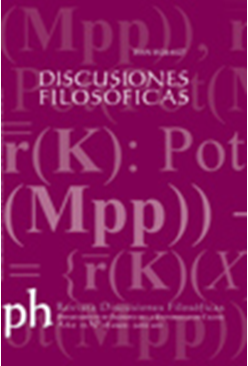Authors
Abstract
In The Human Condition, published in 1958, Hannah Arendt makes an important distinction between the "human condition" and the "human nature". Out of this phenomenological analysis, Arendt tried to circumscribe the limits of the "human nature" and to respond to positivist theoreticians who considered possible to know the essence of the biological human nature. For Arendt, human action, unlike the events that occur in nature, consists of a characteristic very specific of freedom. As a result, a correct understanding of the phenomenon of human condition is not possible through the biological dimension, since human action cannot be properly explained by the forces that act in the external world. This shows that the naturalistic analysis is insufficient and cannot deal properly with the phenomenon of human freedom. On the other hand, though Hans Jonas did not treat completely this problem in his The Principle of Responsibility, he offers a hard criticism of the Marxist project inspired in Arendt's notions (in chapters five and six), targeting the notion of homo laborens, as one of the manifestations of the "human condition".
References
Arendt, Hannah. On violence. San Diego: Harcourt Brace, 1970. Impresso.
- - -. Homens em tempos sombrios. São Paulo: Companhia das Letras, 1987. Impresso.
- - -. The human condition. 2 ed. Chicago: University of Chicago Press, 1998. Impresso.
- - -. A vida do espírito. 4 ed. Rio de Janeiro: Relume Dumará, 2000. Impresso.
Heidegger, Martin. Marcas do caminho. Petrópolis: Vozes, 2008. Impresso.
Horkheimer, Max. Crítica de la razón instrumental. Madrid: Trotta, 2002. Impresso.
Horkheimer, Max e Adorno, Theodor. Dialética do esclarecimento. Rio de Janeiro: Jorge Zahar, 1985. Impresso.
- - -. Dialéctica de la Ilustración. 7 ed. Madrid: Trotta, 2005. Impresso.
Jonas, H. “Por que a técnica moderna é um objeto para a ética”. Natureza Humana. São Paulo. 1.2 (1999): 407-420. Impresso.
- - -. Princípio Responsabilidade. Rio de Janeiro: Contraponto, 2006. Impresso.
Marx, Karl. O Capital: crítica da economia política. Vol. 1. 132 ed. Rio de Janeiro: Bertrand do Brasil, 1989. Impresso.
Moore, G. E. Principia Ethica. Lisboa: Fundação Calouste Gulbenkian, 1999. Impresso.
Ruiz, C. B. Os paradoxos do imaginário. São Leopoldo: Editora Unisinos, 2003. Impresso.
- - -. As encruzilhadas do humanismo. Petrópolis: Vozes, 2006. Impresso.
Sánches, J. J. “Sentido y alcance de la Dialéctica de la Ilustración”. Dialéctica de la Ilustración, ed. Max Horkheimer e Theodor Adorno. 7 ed. Madrid: Trotta, 2005. Impresso.

 PDF (Español)
PDF (Español)
 FLIP
FLIP
























